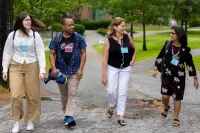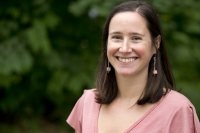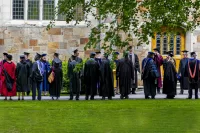
Thirteen professors at Bates College have received promotions, including tenure awards, over the last two academic years. The promotions were recommended by the faculty’s Committee on Personnel and approved by the Bates College Board of Trustees.
“These promotions underscore the global reach of our faculty and the quality of their work,” said Malcolm Hill, vice president for academic affairs and dean of the faculty.
“Our alumni value tremendously the knowledge and habits of mind taught to them by their Bates teachers. Fellow scholars, community leaders, and policy makers seek out the Bates faculty for their expertise, and willingness to collaborate, create, and share. As academic stewards, the faculty help move Bates forward. I congratulate these professors on this milestone, and I thank our entire faculty for their tremendous work.”
Promoted from assistant professor to associate professor with tenure:
Effective August 2022
- Aleksandar Diamond-Stanic of the Department of Physics and Astronomy
- Andrew Kennedy of the Department of Chemistry and Biochemistry
- Alison Melnick Dyer of the Department of Religious Studies
- Paul Schofield of the Department of Philosophy
- Leshui He of the Department of Economics
Effective August 2021
- Nathan Faries of the Program in Asian Studies
- Jeffrey Oishi of the Department of Physics and Astronomy
Awarded tenure as an associate professor:
Effective August 2021:
- Carrie Diaz Eaton of the Program in Digital and Computational Studies
Promoted from associate professor to full professor:
Effective August 2022:
- Stephanie Kelley-Romano of the Department of Rhetoric, Film, Screen Studies
- Paul Shea of the Department of Economics
Effective August 2021:
- Nathan Lundblad of the Department of Physics and Astronomy
- Daniel Riera-Crichton of the Department of Economics
- Adriana Salerno of the Department of Mathematics
Below are profiles of these 13 newly promoted faculty members, including their areas of scholarly expertise, an example of a Bates course they teach, and, in their words, what being a Bates professor means to them.
Associate Professor of Physics Aleksandar Diamond-Stanic
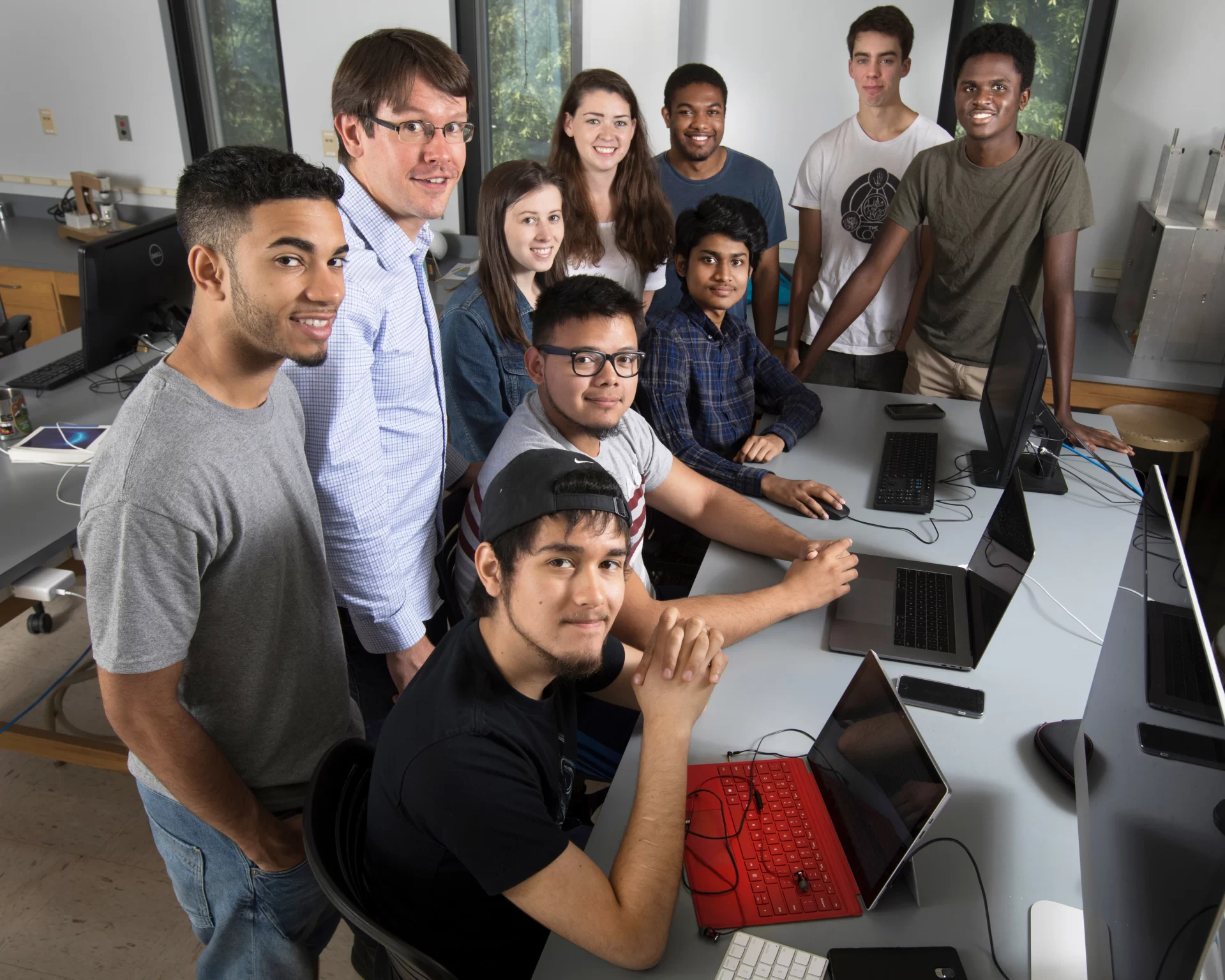
Doctoral institution: University of Arizona
Areas of research: Evolution of galaxies and the growth of supermassive black holes through cosmic time, using data from ground- and space-based telescopes.
Courses taught include: “Galaxies and Cosmology,” an introduction to the astrophysics of galaxies and cosmology with an emphasis on the physical principles required to understand and interpret astronomical observations.
What it means to me to be a Bates professor:
“What I value the most about Bates is the community and the connections with students. Developing supportive relationships with one another is at the core of what we do, and I see myself as a guide and a coach for students as they navigate their own growth and development. At the same time, this allows me to grow as a teacher, as a scholar, and as a human being, and to identify connections and opportunities, both within my own discipline and across many disciplines, in terms of how we can continuously improve at what we do.”
Associate Professor of Digital and Computational Studies Carrie Diaz Eaton
![Associate Professor of Digital and Computational Studies Carrie Diaz Eaton teaches (in Carnegie 226) her course DCS 105. Calling Bull in a Digital World.
Our world is rife with misinformation. This course is designed to hone digital citizenship skills. It is about "calling b***s*** ": spotting, dissecting, and publicly refuting false claims and inferences based on quantitative, statistical, and computational analysis of data (with R). Students explore case studies in policy and science; possible examples include food stamps, caffeine, improving traffic, and gendered mortality rates. Students practice visualizing data; interpreting scientific claims; and spotting misinformation, fake news, causal fallacies, and statistical traps. In so doing, the course offers an introduction to programming. New course beginning Winter 2019. Enrollment limited to 29. [Q] C. Diaz Eaton.](https://www.bates.edu/news/files/2022/12/190320_Carrie_Eaton-Diaz_Class_0430-2.webp)
Doctoral institution: University of Tennessee
Areas of research: Interdisciplinary and inclusive undergraduate STEM education using mixed methods including computational, data science, and digital narrative approaches grounded in a complex adaptive and ecological systems perspective.
Courses taught include: “Calling Bull,” focusing on data literacy and information science to help students hone their digital citizenship skills by spotting, dissecting, and publicly refuting false claims and inferences based on quantitative, statistical, and computational analysis of data.
What it means to me to be a Bates professor:
“I value Bates because of the intellectual freedom it offers someone like me, an interdisciplinarian. I love being able to teach and research from both mathematical and computational perspectives alongside critical perspectives, qualitative approaches, and community justice and activism. I don’t have to leave a part of myself at the door to be successful, and I endeavor to provide an environment where my students can say the same.”
Associate Professor of Asian Studies Nathan Faries
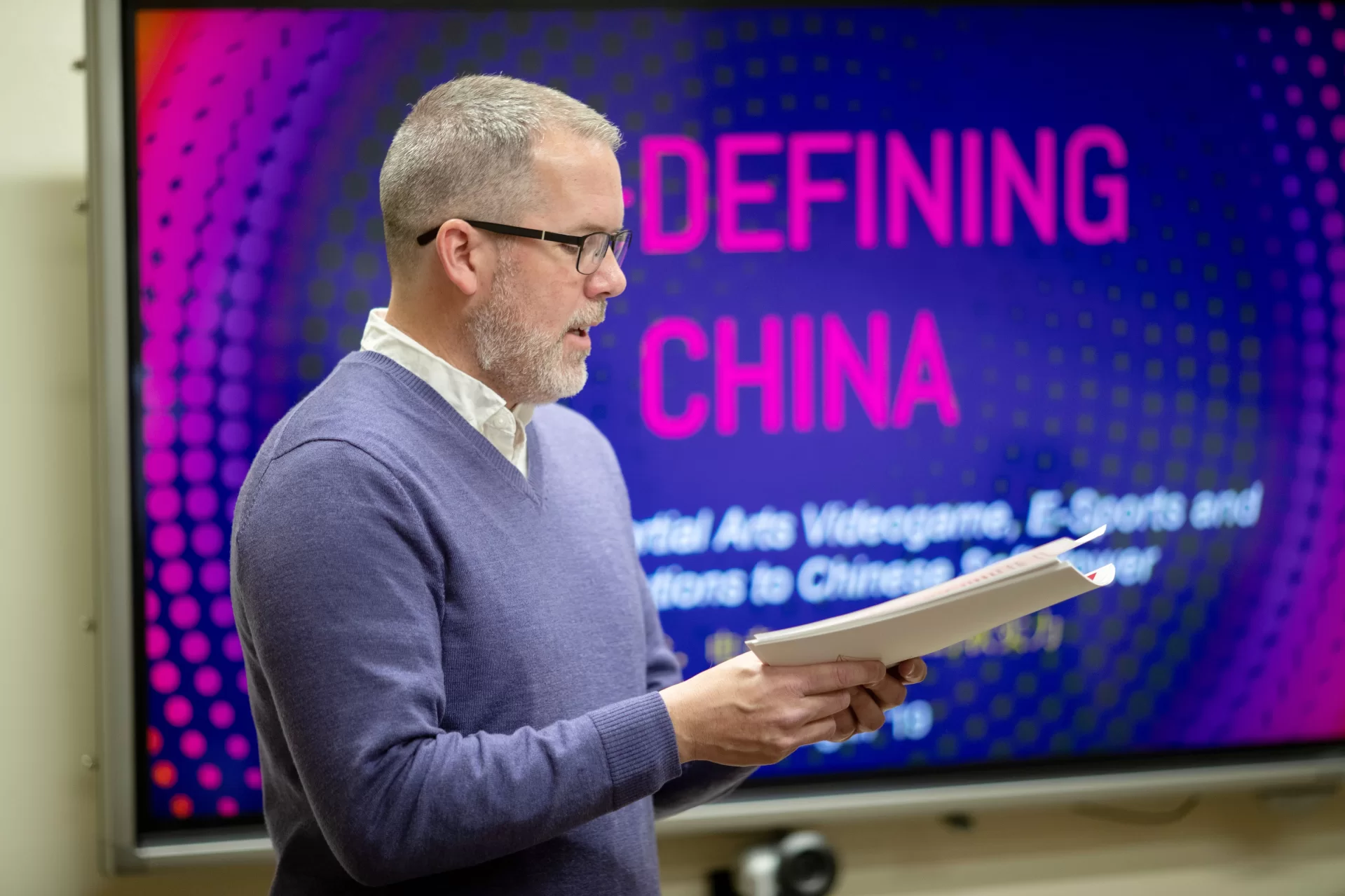
Doctoral institution: Penn State University
Areas of research: Examining religious identity and freedom in Chinese literature, including portrayals of Buddhism in adaptations of 16th-century Chinese literature and exploring Chinese spiritual practice as it contrasts with Western Christian spirituality.
Courses taught include: “Communism, Capitalism, and Cannibalism,” a survey of literature since 1911 from mainland China and texts from the Chinese diaspora, including three periods: the May Fourth shift from traditional language and forms to vernacular literature; Socialist Realism and the Marxist theory of the first three decades of the People’s Republic; and China’s Reform Era.
What it means to me to be a Bates professor:
“I am very grateful to be teaching at Bates and teaching material that still fascinates me. I get to spend a good portion of each work day interacting with intelligent young people from all over the world. This job allows me to keep growing; I receive new insights about Chinese language and culture every day thanks to my students and colleagues. Being a Bates professor offers me the gift of hope for the next generation, for the future of China–U.S. relations. This position gives me the assurance of continuity, a vision for this work being carried on by others long after I have retired.”
Associate Professor of Economics Leshui He
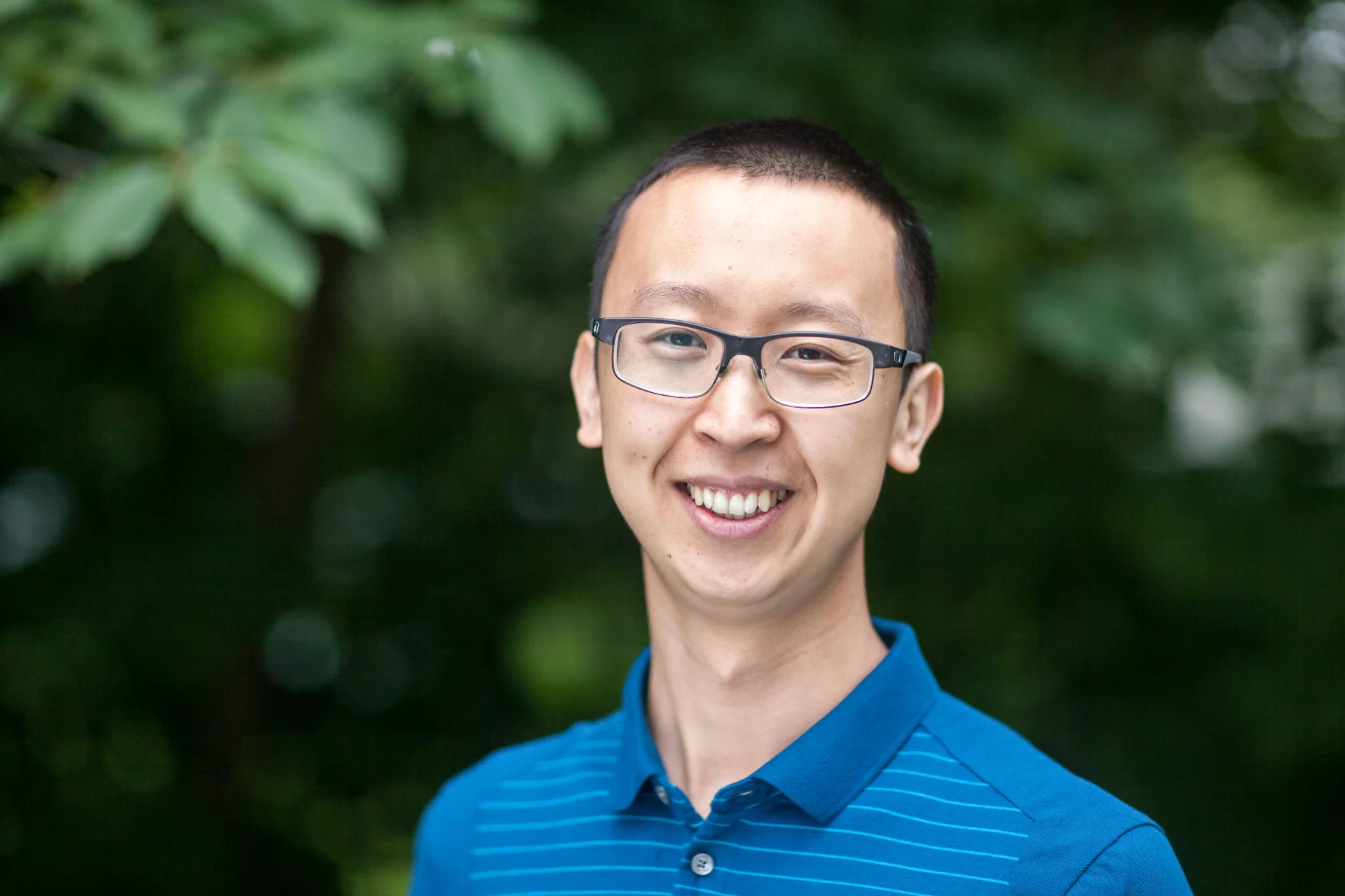
Doctoral institution: University of Connecticut
Areas of research: Microeconomics, including dwindling offline retail on the prices at online retailers and effect of news media on sensationalistic consumer products.
Courses taught include: “Economics of Strategies in Firms and Markets,” investigating the economics of strategies between and within firms, including applications of game theory in the realm of business practices and empirical realities of business organizations.
What it means to me to be a Bates professor:
“Being a Bates professor is an exciting adventure that energizes me every next moment. The talented, curious, generous, and hardworking people around campus constantly inspire me. In the classrooms, offices, and dining hall, I receive more thought-provoking questions, stories, and wisdom than I can ever give back. Above all, my wonderful colleagues and students made me kinder, smarter, and happier.”
Professor of Rhetoric, Film, and Screen Studies Stephanie Kelley-Romano
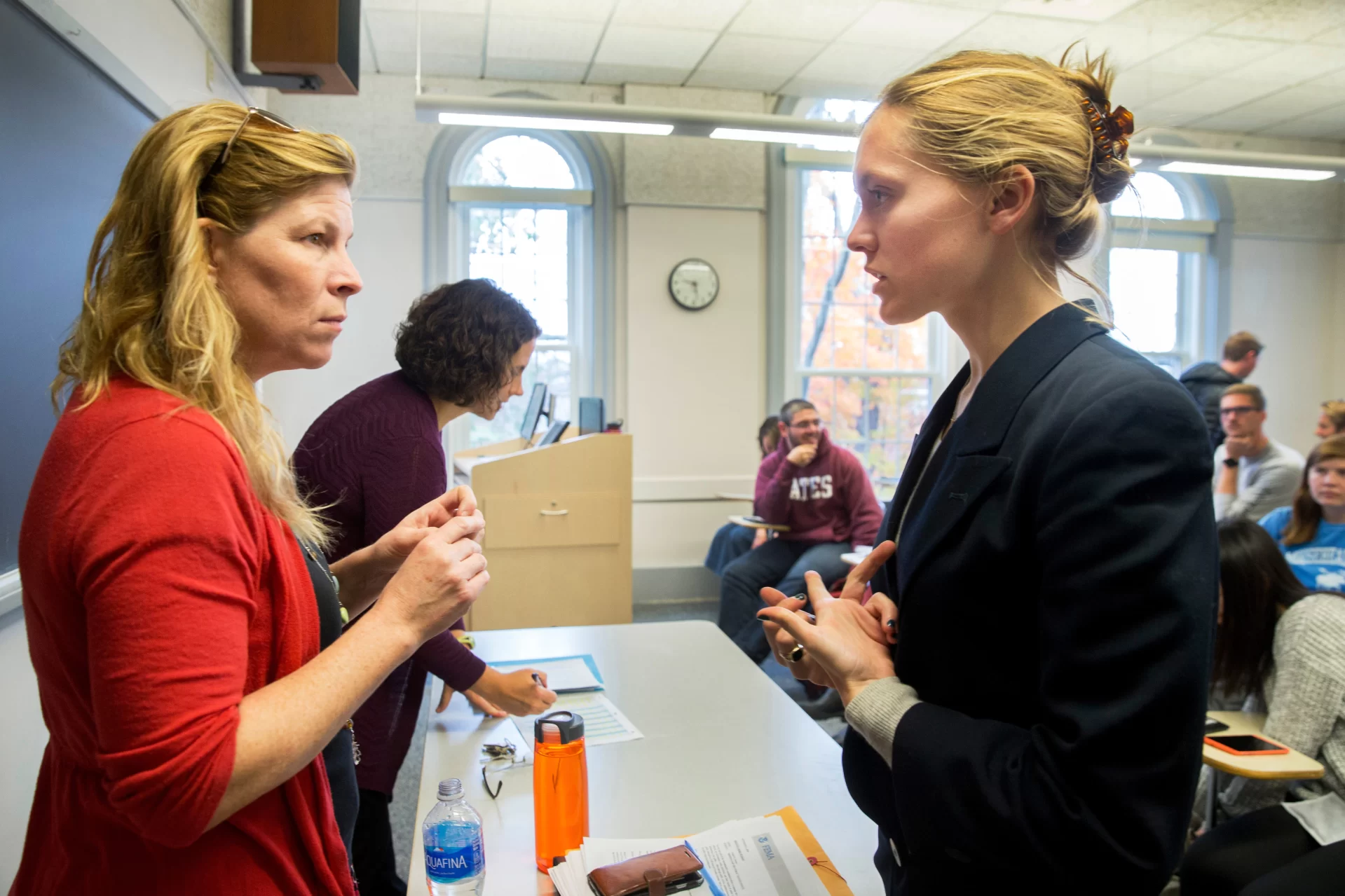
Doctoral institution: University of Kansas
Areas of research: Her research and teaching interests include gender and media, myth and narrative, conspiracy, political rhetoric, and substance (mis)use disorder/addiction.
Courses taught include: “Television Criticism,” examining the representational strategies employed by television to convey social messages, including how representations of race, class, sexuality, ability, and other categories of analysis are articulated in science fiction and fantasy on television.
What it means to me to be a Bates professor:
“Being a Bates professor to me means I get to engage the world with a bunch of intellectually curious — and brave — people. I get to talk about television, politics, and conspiracies, and then, with my students, critique the way the topics and forms distribute, or replicate, power. Then, I get to watch them come up with creative and critical solutions to move the bar for civic discourse higher. Ridiculously cool.”
Associate Professor of Chemistry and Biochemistry Andrew Kennedy
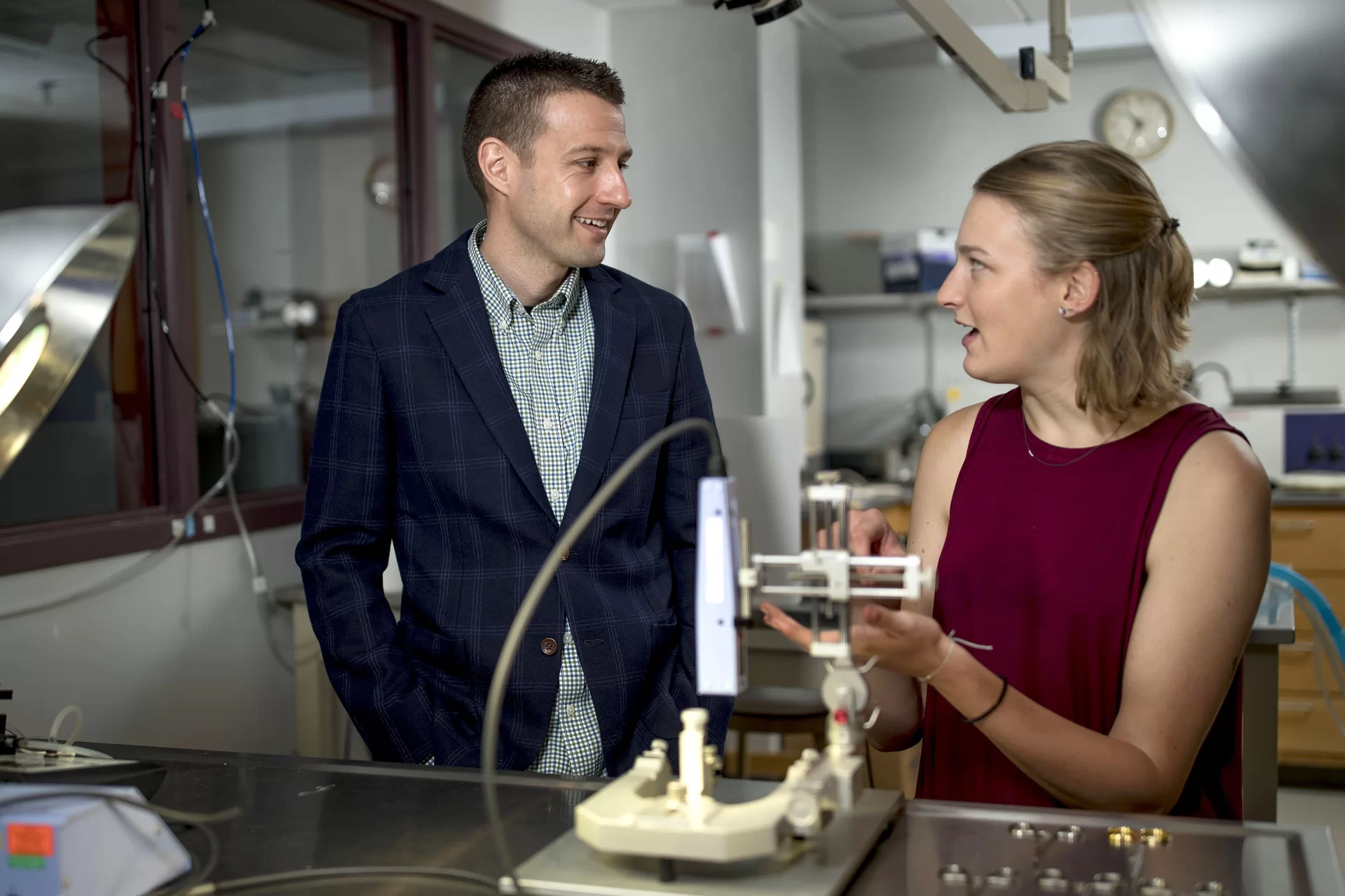
Doctoral institution: University of Virginia
Areas of research: Understanding the chemical mechanisms that encode and maintain long-term memory and learning imprints information onto the epigenome of participating neurons.
Courses taught include: “Mechanisms of Memory,” a study of how our experiences are encoded chemically into the mind as memories, and how they can be manipulated, enhanced, erased, or edited genetically and molecularly.
What it means to me to be a Bates professor:
“For me, being a Bates professor is about helping students create and organize moving relationships with ideas. An education is not an accumulation of experiences; it is a process of learning strategies to experiment with the techniques of argument, and then finding evidence, whether it supports the hypothesis or not.
“So much of science education is learning facts about the known universe, but practicing science requires seeing the unknown spaces from original and creative angles. I think being a Bates professor of science is helping students turn that intellectual corner themselves. There is pride in that, even arrogance, but also honesty as to why I am here: a deep faith in the power of young people enfranchised with truth and responsibility.”
Professor of Physics Nathan Lundblad
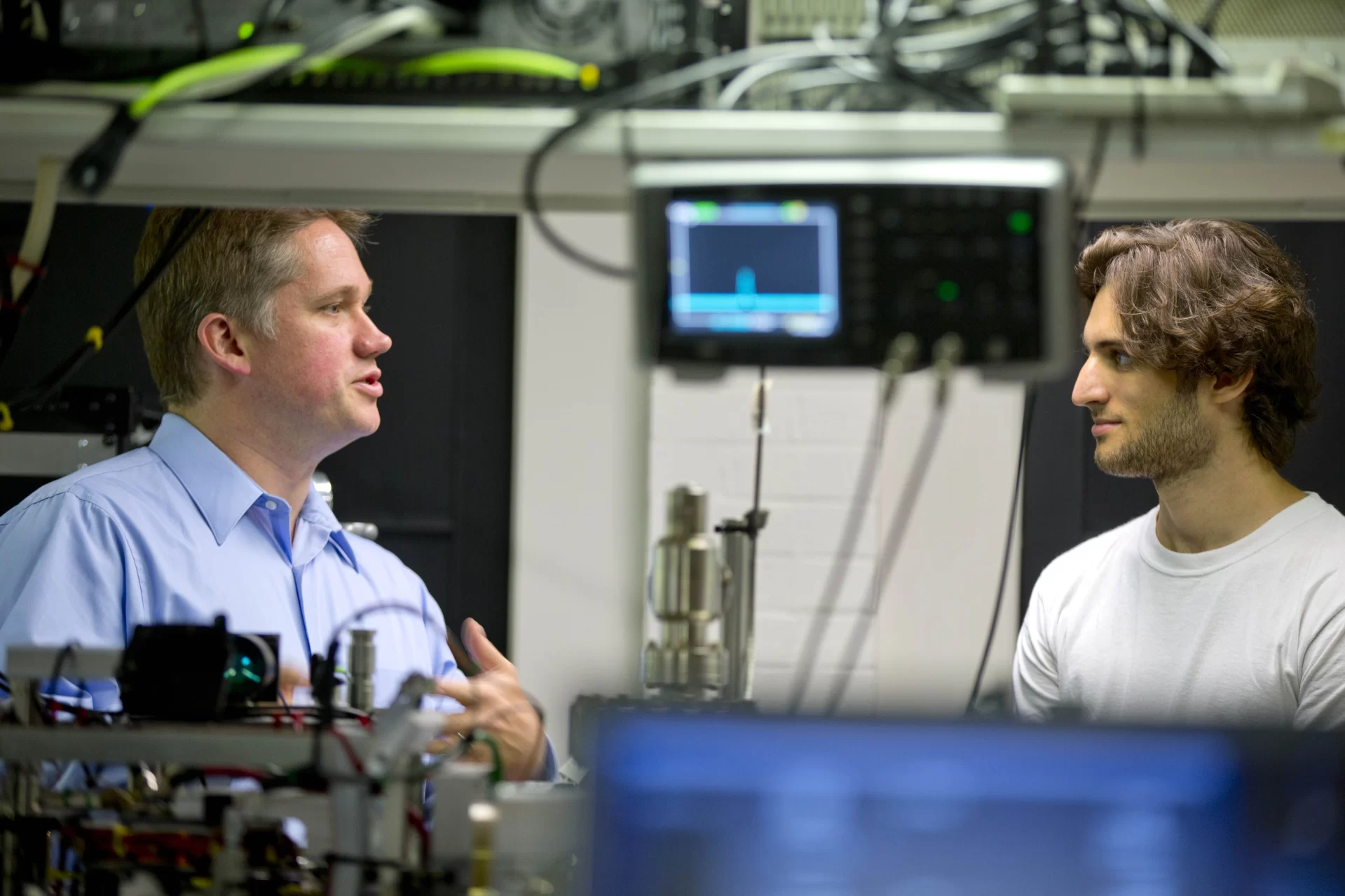
Doctoral institution: California Institute of Technology
Areas of research: Exploring the physics of matter cooled to just barely above absolute zero, including the phenomenon of Bose-Einstein condensation terrestrially and in microgravity aboard the International Space Station.
Courses taught include: “Quantum Computing,” an emerging field that explores how the laws of nature can be used to store and process information in new ways, including the potential to create an exponential speed-up for certain classes of computational problems.
What it means to me to be a Bates professor:
“Being a professor at Bates means I get to share what I find most interesting about the world with students every day. It means I get to build low-temperature experiments with lasers and magnets in Carnegie Science Hall, work with collaborators on similar projects around the world, and feel connected — through the tools of my field, ultracold atomic physics — to the ongoing human effort to build better and better models of how the universe works.
“Physics as a science can provide deep knowledge about the world. More importantly, it represents a way of thinking that I constantly push students to embrace. As they build thesis experiments, build models and analyze data in lab courses and summer research projects, and figure out what doesn’t make sense here at every stage, students develop a solid framework for solving problems and building intuition. I’m privileged to be a part of that sense-making process, and I try to model it for them as much as I can: sharing when I’m stuck or confused, as well as when I and my collaborators have finally figured something out that’s been a long time coming. Plus, we all get to use high-power lasers while we’re doing it…”
Associate Professor of Religious Studies Alison Melnick Dyer
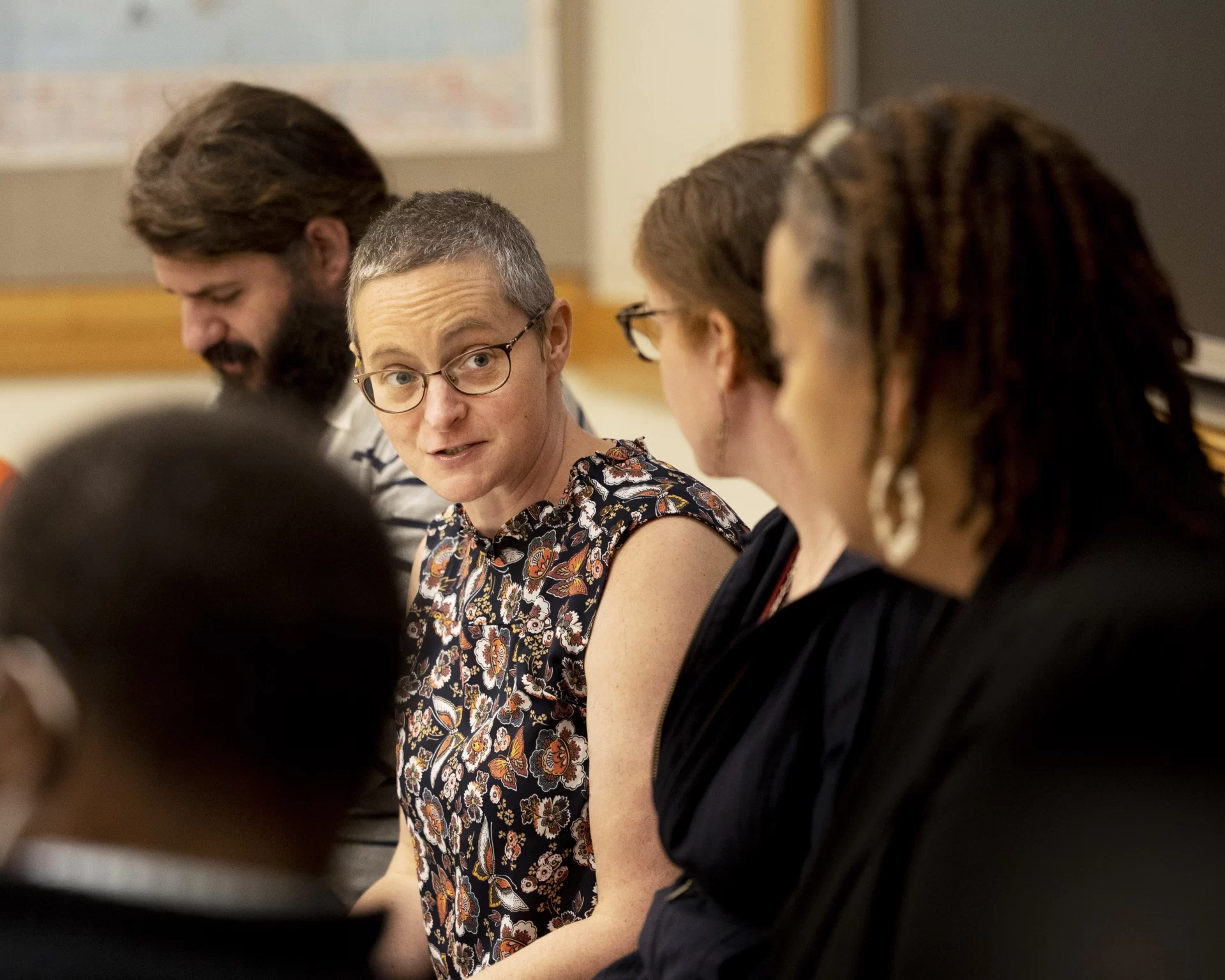
Doctoral institution: University of Virginia
Areas of research: Tibetan and Chinese Buddhist literary history, the role of hagiography in creating the lives of Buddhist saints, 21st century gender dynamics in and between monastic institutions, power and privilege in Buddhist societies.
Courses taught include: “Buddhism and Gender,” examining the role of gender in Buddhist communities from the inception of the religious tradition to the modern day, including how gender identity has influenced Buddhism and where gender appears in Buddhist literature, doctrine, and art.
What it means to me to be a Bates professor:
“What I love most about being a Bates professor is working with thoughtful and engaged students and colleagues to better understand how religion functions as a key component of our human experience. I’m continually impressed with the ways that Bates folks are committed to being engaged in dialogue, whether it’s sitting in a classroom on campus discussing how religious bias influenced the experiences of interned Japanese Americans in World War II, or traveling to remote Buddhist communities in Ladakh to study the impact of monastic education on the lives of young people.
“As an interdisciplinary scholar, it is so great to see students drawing connections across disciplines to make sense of the ways that religion continues to influence experiences of gender, social class, privilege, and power. And it’s incredibly enriching to work with colleagues across campus who are invested in making the world a better place. I feel very lucky to be here!”
Associate Professor of Physics Jeffrey Oishi
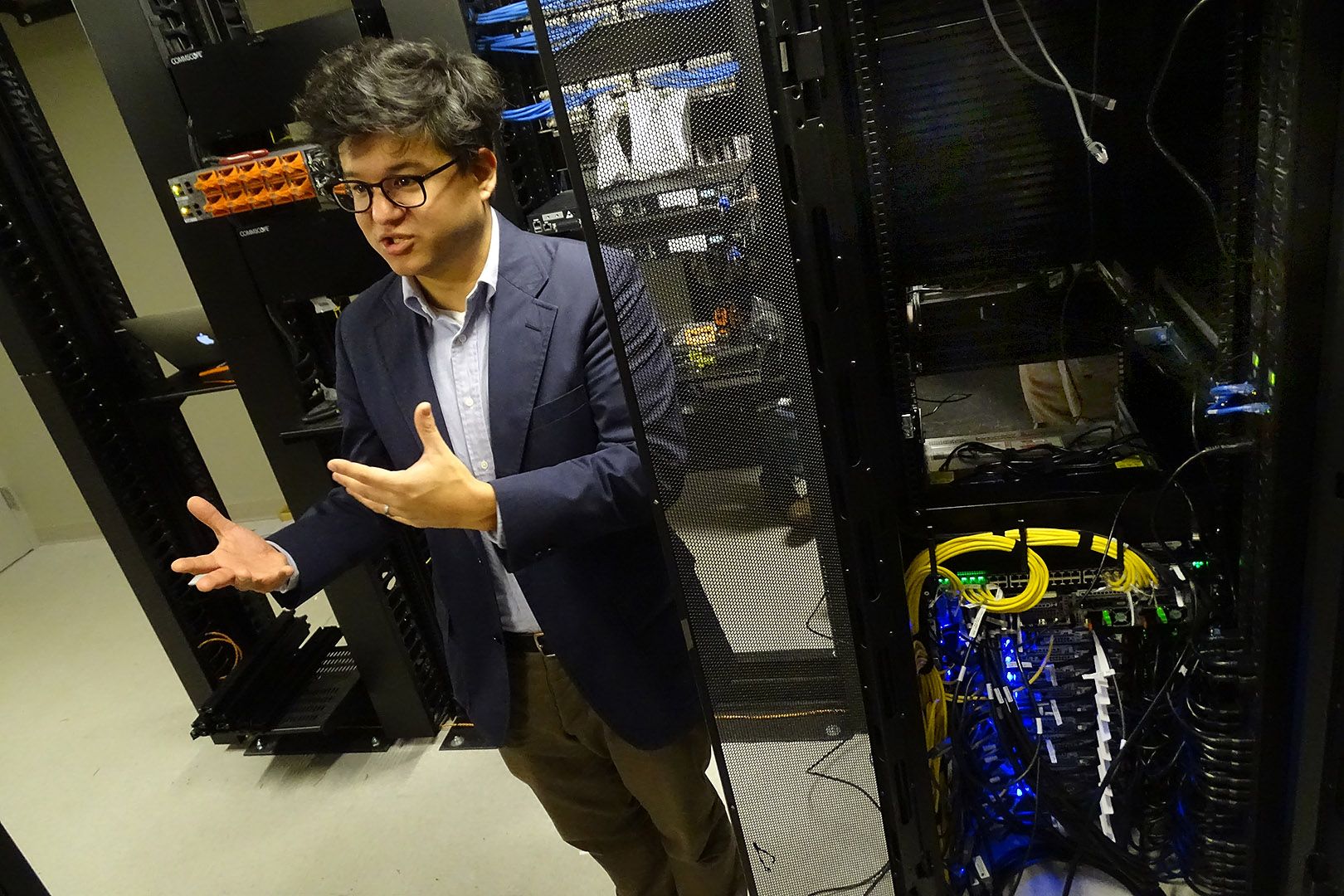
Doctoral institution: University of Virginia
Areas of research: Theoretical and computational fluid and plasma dynamics, with particular interest in problems related to sustainability: the dynamics of Earth’s ocean and atmosphere, the confinement of plasmas in future fusion power generators, and the Sun’s magnetic field.
Courses taught include: “Quantum Theory,” a formal treatment of quantum theory combining physical insight and motivation with the mathematical tools of abstract vector spaces and group theory.
What it means to me to be a Bates professor:
“Being a Bates professor gives me the opportunity to help students develop the habits of mind that make up theoretical physics: a ceaseless process of questioning, quantification, and approximation that allow us to gain deep insight into the physical world. At Bates, I get to do this while working on problems at the forefront of fluid mechanics and plasma physics with a team of students here in Maine and collaborators from around the world.”
Professor of Economics Daniel Riera-Crichton
Doctoral institution: University of California–Santa Cruz
Areas of research: Exploring the fiscal multipliers and their interplay with monetary policy, global financial transmission mechanisms, the links between banking and external crises, and the relationship between economic shocks and macroeconomic development.
Courses taught include: “Time Series Econometrics,” examining issues related to time series data including stationarity, lag structure, and endogeneity, as well as estimation techniques such as vector autoregressions, maximum likelihood, and Bayesian approaches.
What it means to me to be a Bates professor:
“Being a Bates professor is a privilege. The opportunity to work next to outstanding educators and to teach wonderful young minds is challenging and ultimately extremely rewarding. At Bates, we get a fresh view of the world every semester and the opportunity to learn through the eyes of our students. We are rewarded seeing our students develop into independent thinkers, ready to make their contributions to society. I am grateful to be part of this community.”
Associate Professor of Philosophy Paul Schofield
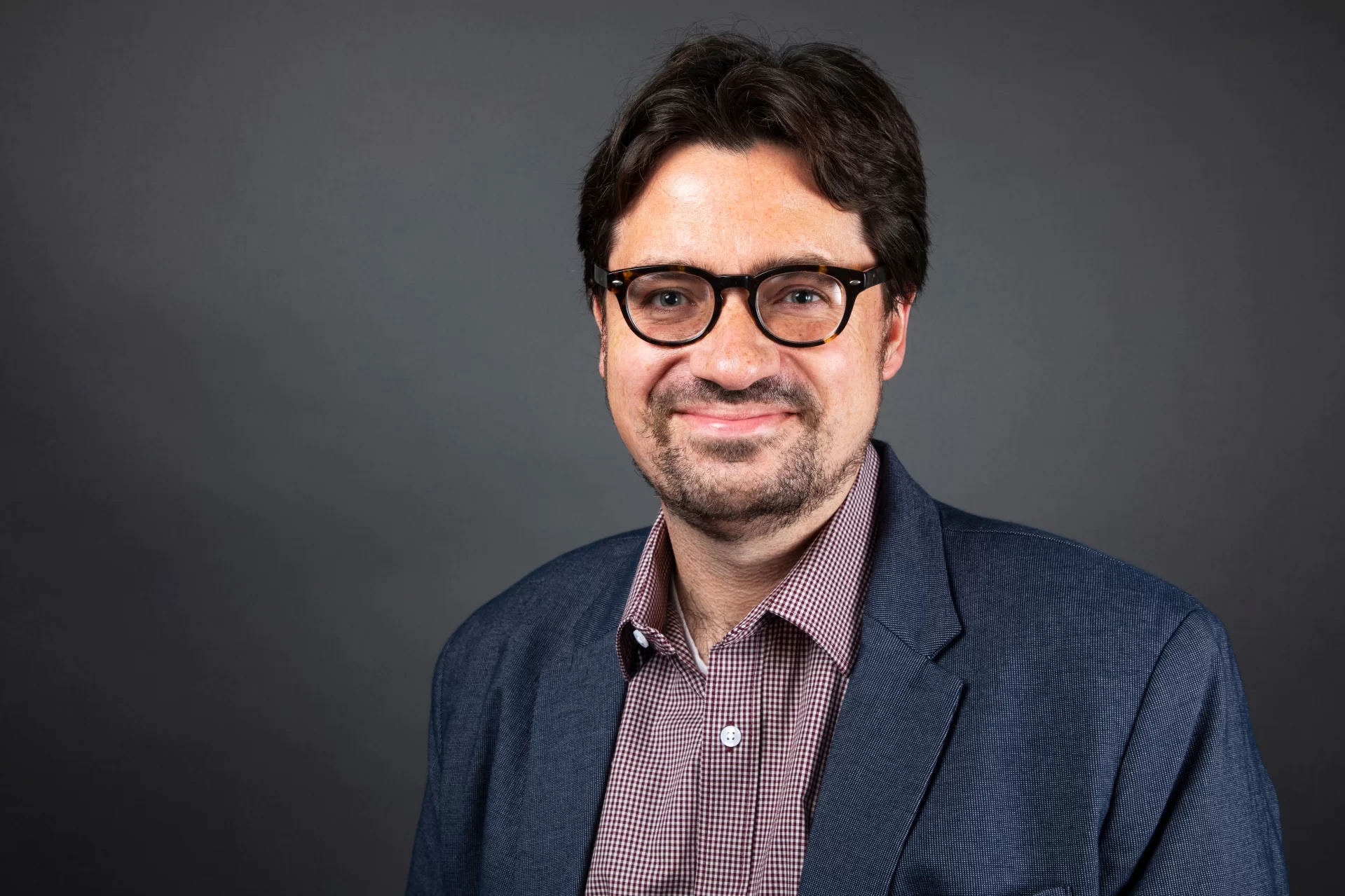
Doctoral institution: Harvard University
Areas of research: Moral and political philosophy as well as the philosophy of film.
Courses taught include: “I and Thou: Recognition and Second-Personal Morality,” examining the requirement of morality that we treat people not simply as objects to be planned around or manipulated, but as beings with a special status that we ought to recognize or acknowledge.
What it means to me to be a Bates professor:
“Whether I’m meeting with students, or meeting with other faculty, or meeting with senior staff, being a Bates professor doesn’t just mean I have a job. It means being part of a community that I take with me, wherever I go.”
Professor of Mathematics Adriana Salerno
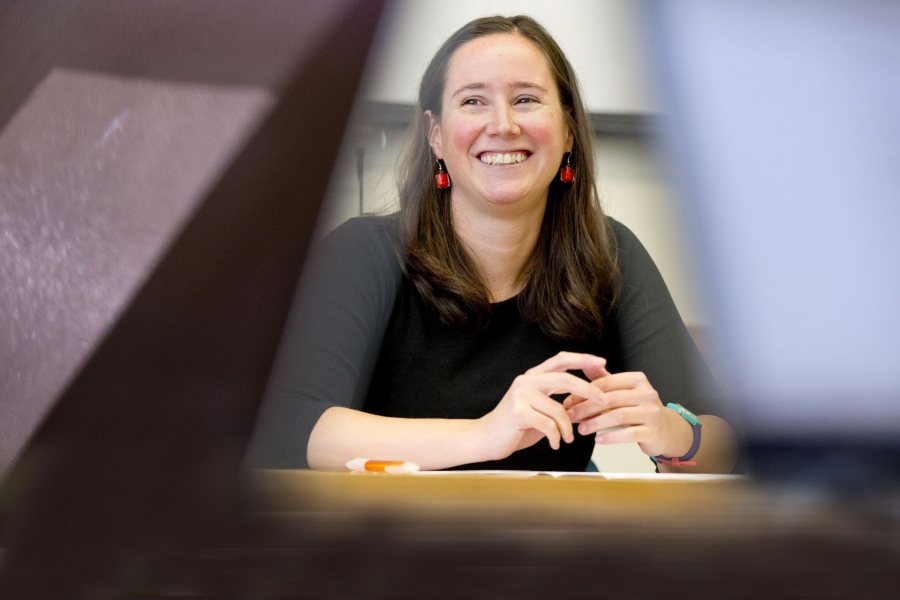
Doctoral institution: University of Texas at Austin
Areas of research: Exploring number theory, in particular the intersections of number theory with geometry, physics, and cryptography; also interested in the communication and teaching of mathematics to create a more inclusive and equitable STEM community.
Courses taught include: “Cryptography,” examining public key cryptography, which is at the center of most secure transactions, with an exploration of various methods of encryption — RSA cryptosystem, the Diffie-Hellman key exchange, Elliptic Curve Cryptography — and methods of breaking these encryptions.
What it means to me to be a Bates professor:
“Being a Bates professor means I get to be fully myself: I get to be a teacher, a mentor, an advocate for a more inclusive math profession, a research mathematician, and a member of a community committed to justice. Even better, I get to help our students be fully themselves and see them thrive, alongside folks who care about our students as much as I do.”
Professor of Economics Paul Shea
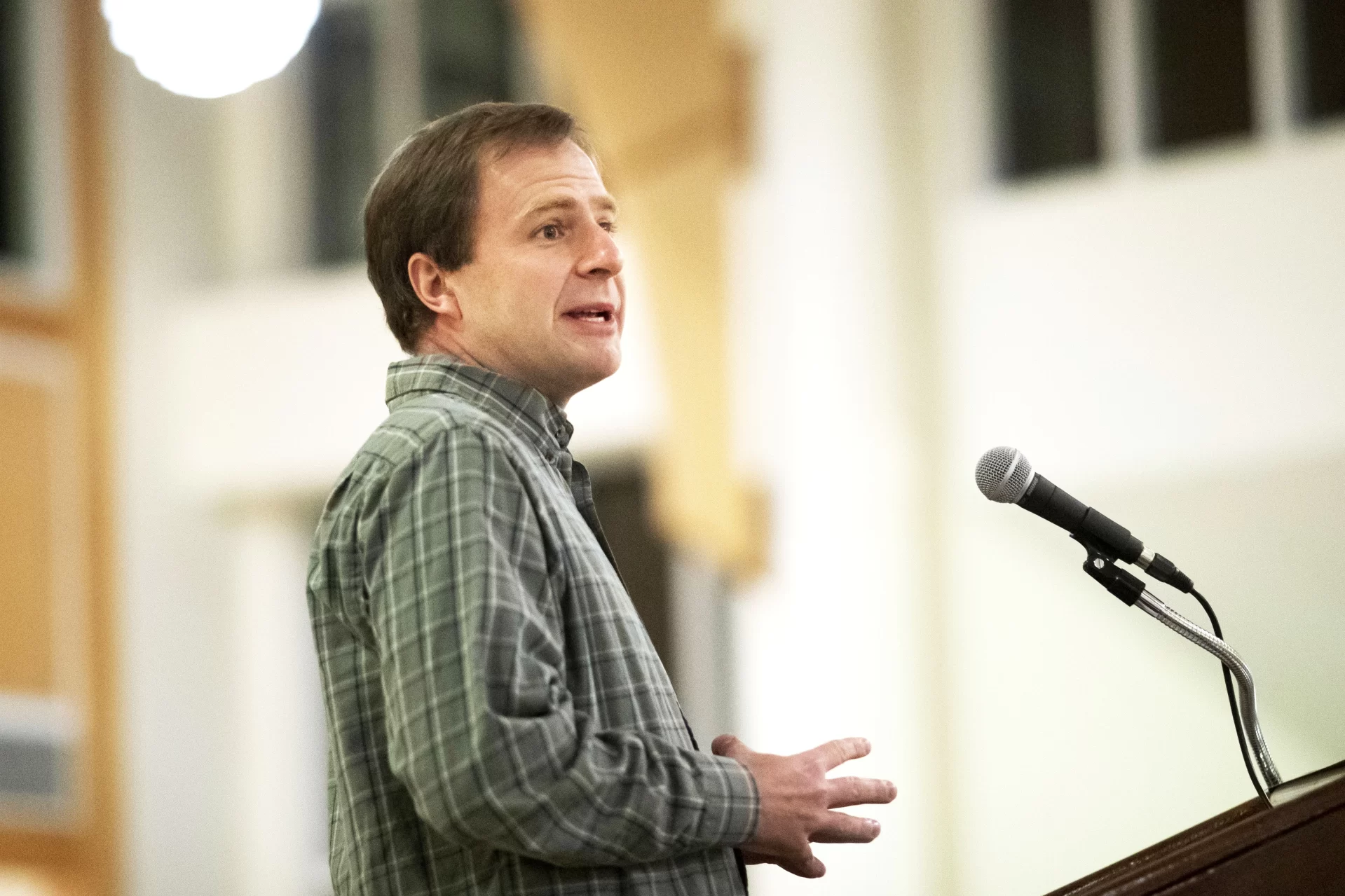
Doctoral institution: University of Oregon
Areas of research: Macroeconomics, especially macroeconomic effects of incomplete or faulty information.
Courses taught include: “A Tale of Two Recessions: 2008 and 2020,” examining the causes, events, and aftermath of the 2008 recession, including the housing bubble before the recession, how the crisis in the housing sector spread to the rest of the economy, and the response of monetary, fiscal, and regulatory policies.
What it means to me to be a Bates professor:
“I enjoy being at Bates because of the community of students, colleagues, and staff. I am continually impressed with the intelligence and curiosity of Bates students, and by how supportive they are of one another. Teaching at Bates is just having a conversation about topics in economics that we are mutually interested in. I have been fortunate to have so many great faculty colleagues who are deeply invested in our curriculum. Also our great staff make the campus a wonderfully pleasant place to come to work each day.”
